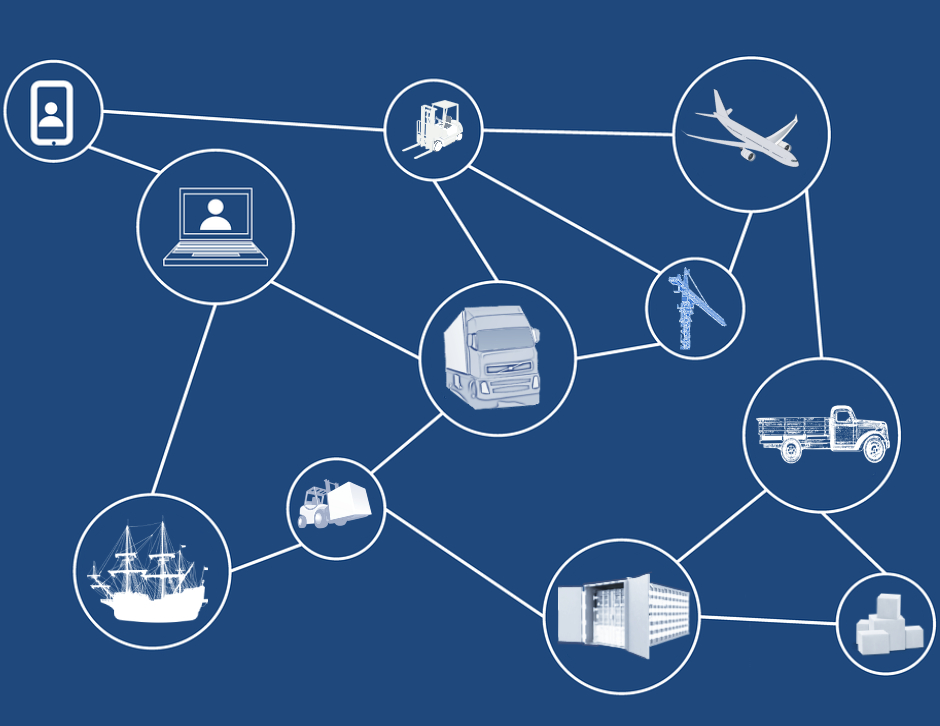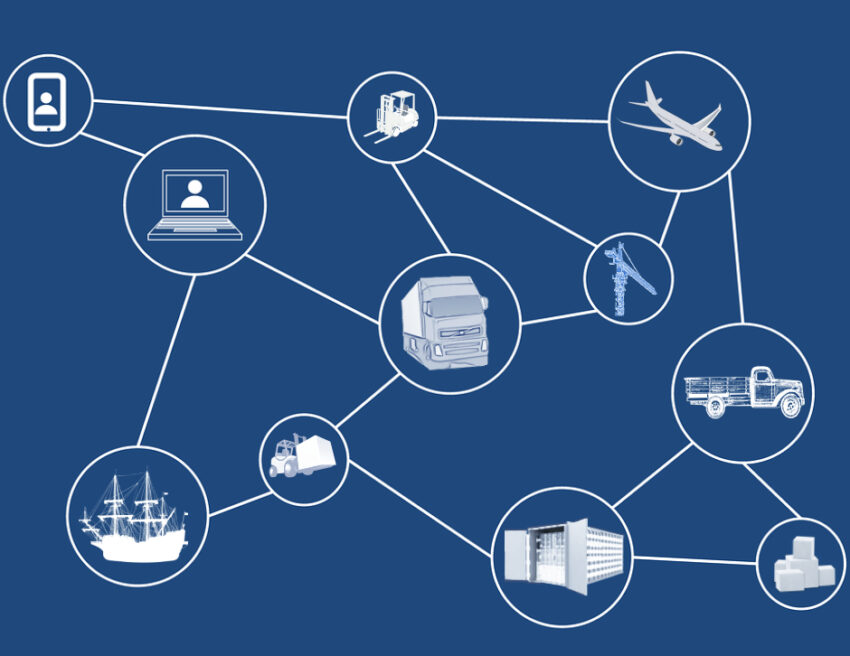Blockchain technology is enhancing the operations of the transportation and logistics industry making the companies in this sector more profitable and efficient. Contrary to what many people think, the use of blockchain isn’t restricted to cryptocurrencies. This groundbreaking technology is impacting every industry and the supply chain sector is no different. Blockchain provides a localized network that allows peers to transact and communicate without requiring a centralized authority. The decentralized nature of this technology offers a number of advantages. For instance, it promotes transparency, enhances security and stability. The logistics industry is one of the biggest beneficiaries of this revolutionary technology. In today’s post, we will discuss everything about blockchain and its role in the logistics industry.
Understanding the need for blockchain in the transportation and logistics industry
The most important application of blockchain in logistics is the prompt resolution of its inefficiencies. This is one industry that comes with plenty of volatility and ‘what if’ scenarios. The stakeholders in this industry need to concentrate on offering efficient solutions instead of spending time on selecting the best option. Additionally, we have a problem with documentation. The logistics service providers have to depend on tons of documentation that tend to slow down the process of door-to-door shipping. Putting it simply, the absence of a single source of the database is responsible for slowing down the transportation process. This industry needs a decentralized entity capable of processing all the proceedings while also acting as a centre for the verification and enhancement of the entire process.
Blockchain integration could help to overcome several logistics barriers and help to increase the revenue by around 15%. The use of blockchain is allowing companies to cut costs and time by digitizing the entire selling process. For instance, smart contracts help to eliminate accuracy and lowers fraud. It makes the operations more secure and results in an enhanced flow of transactions. Some of the biggest multinationals like Amazon, Walmart, Alibaba, Nestle, Unilever, etc, are using blockchain to optimize their supply chain. It offers the means to record proceedings, track assets with the required documentation, and provides a transparent and highly functional system. Moreover, being digital in nature, all the documentation is done online. This increases accuracy, fosters data visibility, and allows the stakeholders to access the data anytime from anywhere.

Applications of blockchain technology in the logistics industry
-
Improved efficiency
The use of blockchain in this sector is transforming the traditional models of freight shipping. Freight forwarding companies are using it to quicken their delivery process. For instance, blockchain-enabled shipment tracking greatly boosts the customer experience of the forwarders. Maersk, for instance, is using blockchain empowered cargo tracking system across all international borders. Moreover, Maersk and IBM have teamed up to ensure better integration of blockchain into everyday logistics to facilitate international trade. It allows the companies to operate internationally and transparently. Blockchain optimizes the delivery processes and helps both parties to secure information via commercial transactions. It reduces the dependence on paperwork and creates an automated process. In other words, it gives you a structured approach for monitoring the cargo lifecycle from point of origin to destination.
-
Inventory management and real-time asset tracking
Blockchain technology finds major use in logistics operations in the field of inventory management and cargo tracking. Blockchain is being used in conjunction with IoT (Internet of Things) and mobile-based techs for monitoring real-time delivery. Gone are the days of manual tracking. Digital sensors are now allowing freight companies to track their assets from start to end. In other words, this has led to a quicker delivery, better customer satisfaction, and increased visibility. Additionally, visibility enhancement fosters greater trust in B2B logistics. For example, it reduces invoice-related disputes between partners and even lowers audit expenses. It also helps to eliminate the exploitation of workers at the grassroots level. It helps with meticulous inventory audits that can be further simplified by using IoT sensors. Blockchain platforms reduce the possibility of lost items, unsuitable storage, and any other factors that can hinder a positive outcome.
-
More security
The centralized systems make them more prone to security threats. They allow attackers to get total control over the entire system as soon as they get access. Therefore, they get to delete, steal or change any data stored within the system. On the other hand, blockchain networks don’t have a central authority. Its decentralized nature enhances security since the attacker doesn’t get to access all the data stored in the chain. Additionally, blockchain makes use of cryptographic security techniques which further reduce the possibility of data theft.
The data in the blockchain is stored with all the info on who created it and when. Whenever anyone makes any attempt to change the data, the system shows it. On the termination of the smart contract after the delivery of cargo, the public ledger reflects that data. The feature responsible for increasing the security of blockchain-enabled platforms is the hash function. The uniqueness of every hash makes it impossible for the attacker to make any change without the system showing it.
-
Smart contracts
Settling an invoice is a lengthy process in the logistics industry. It takes an average of 40 days to settle an invoice in the transportation and logistics industry. It goes without saying that this leads to a waste of considerable time and resources. Smart contracts are blockchain-enabled solution that leads to automated lawful agreements among all the stakeholders in the chain. They come with all the required data involving funds. The smart contracts will allow you to release the funds only after verifying the documents that prove the delivery of the cargo. In other words, it eliminates the process of manual release of funds from time to time while the shipments move through the supply chain. In addition, it lowers the risk of one party failing to fulfill their side of the agreement.
-
Keeping track of performance history
Blockchain-enabled platforms also help to track the performance history of your suppliers and carriers. Additionally, it allows freight companies to track the performance of each truck in their fleet. You get to see the previous performance of the carriers relating to timely pickups and delivery. The availability of this information helps you take better decisions while selecting your carriers and choosing your routes. In other words, it helps to improve the bottom line of your organization.
Blockchain platforms delivering end-to-end business solutions have become an absolute game-changer in the transportation and logistics industry. However, in order to make the most of this technology, all the different components in the industry needs to collaborate. Collaboration is mandatory for this technology to work. Blockchain involves the inclusion of data from multiple parties like freight forwarders, suppliers, regulators, manufacturers, etc. This is why all the stakeholders in the supply chain need to collaborate with their industry peers to create the standard for this technology to work.


